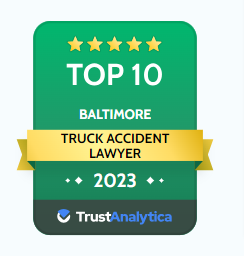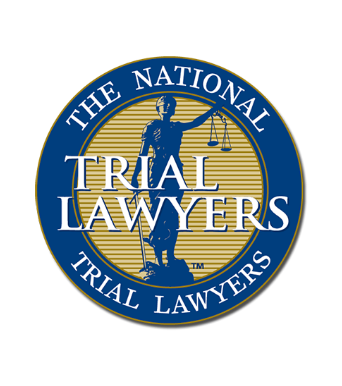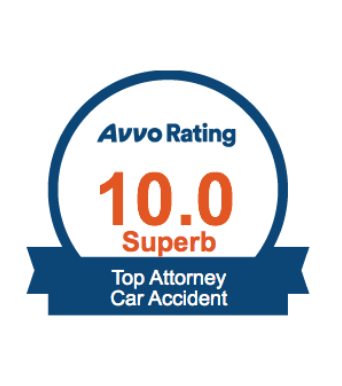Aspen Hill, MD Truck Accident Lawyer
Semi-trucks and 18-wheelers pose a great danger when they are involved in motor vehicle accidents. The odds are stacked against the ordinary motorist. Commercial trucks are large and carry heavy loads, leading them to cause serious, sometimes permanent, injuries. A truck accident can leave you burdened with long-lasting injuries, debilitating medical expenses, or dealing with the death of a loved one. A truck accident lawyer can help you get the financial compensation you deserve after such a traumatic event.
More than one party might be liable to you in a truck accident lawsuit. In addition to the truck driver being liable, their employer could be liable if the driver got in an accident while on the job. Other factors, such as a drowsy truck driver, can increase the risk of truck accidents. Fortunately, you don’t have to fight for financial compensation in the aftermath of your truck accident alone.
Do not hesitate to call our truck accident lawyers at Rice, Murtha & Psoras at (410) 694-7291 for a free case review.
Should You Sue the Driver’s Employer in an Aspen Hill, MD Truck Accident Lawsuit?
In addition to suing the driver in a truck accident lawsuit, it is likely a good idea to also sue their employer. The truck driver alone will often not be in a position to financially compensate you for any injuries or medical bills, making them “judgment proof” in a lawsuit. The truck driver’s employer will often be in the best position to pay any damages awarded to you.
What Makes an Employer Liable?
Under the legal doctrine of “respondeat superior” (meaning “let the master answer),” an employer can be held liable for the negligent conduct of their employees under certain circumstances. The employee’s conduct must be sufficiently related to their job, i.e., within the scope of employment, for the employer to be liable.
Employee Conduct Related to Work
The employer cannot be liable if the employee’s conduct is too far detached from their work. The legal term for this is a “frolic,” which is when the truck driver is doing something unrelated to their work when your accident occurs. For example, if a truck driver decides not to go to work and drives their truck to their friend’s house to hang out instead, and hits you on the way there, the driver’s conduct is unrelated to their work, so you cannot hold their employer liable.
On the other hand, a ” detour ” is conduct that is related closely enough to work to have the employer liable. Truck drivers, in particular, have numerous opportunities to take detours from work where their employer could be liable if an accident happens. Truck drivers have to make stops while on the road to eat food, relieve themselves, or rest for the night. A truck driver might also need to stop and refuel their company vehicle. If you were injured by a commercial truck while any of these activities were occurring, the employer might be liable.
Common Causes of Truck Accidents in Aspen Hill, MD
The truck driver’s conduct while on the road can directly contribute to the risk of a truck accident. Sometimes this conduct is in the driver’s control, and other times external factors might be affecting the driver.
Ordinary Traffic Mistakes
Truck drivers are no more immune from making a run-of-the-mill error while driving than anyone driving a regular vehicle. If the truck driver in your truck accident was speeding, ran a red light, or accidentally merged into oncoming traffic, they might be liable for your injuries.
Drunk Driving
Driving under the influence is incredibly dangerous. According to the National Highway Traffic Safety Administration, 13,384 people died in drunk driving accidents in 2021. Because trucks are much more dangerous than regular vehicles, there are federal regulations governing alcohol consumption for truckers. Under no circumstances can a trucker drink on the job. Moreover, a breathalyzer test must be administered following any truck accident. Finally, the legal limit for truck drivers on the job is a BAC of 0.04% instead of the standard 0.08% limit.
If the truck driver was drunk during your accident, you might have a claim against the driver and their employer, and the driver will also likely face criminal penalties.
Truck Driver Negligence
In law, negligence means that the truck driver acted carelessly or alternatively did not do something a responsible truck driver would have done. Truck drivers are certified to drive their large, heavy vehicles. They need to know how long it takes for a vehicle to stop, how to turn safely with a trailer behind them, and other skills unique to driving a big rig. If, for example, the truck driver negligently loaded their trailer so that the truck is harder to control, you might have a negligence claim against the driver.
Tired Driving
Tired driving can have similar effects to driving under the influence. Tiredness impairs the driver’s ability to react quickly to situations on the road and leads to poorer decision-making. It is a problem if someone behind the wheel of a heavy tractor-trailer is drowsy and therefore less able to keep other drivers safe. Accordingly, there are rules in the trucking industry that govern how long a truck driver can be on the road without a rest period.
Sleep apnea is a medical condition that causes breathing to stop and start while a person is asleep. Sleep apnea is generally not a serious diagnosis and is treatable with medication, but severe or untreated sleep apnea can have side effects. Increased drowsiness during the day or even frequent dozing off can be side effects of untreated sleep apnea. Although it is true that sleep apnea does not completely prohibit someone from being a trucker, it could be a factor that contributes to a truck accident.
Call Our Aspen Hill, MD Truck Accident Lawyers Right Away
Call our truck accident Lawyers at Rice, Murtha & Psoras at (410) 694-7291 for a free discussion of your case.













